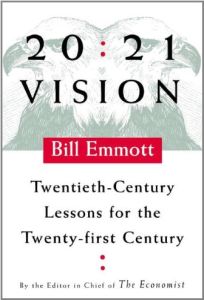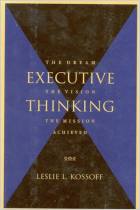Join getAbstract to access the summary!

Join getAbstract to access the summary!
Bill Emmott
20:21 Vision
Twentieth-Century Lessons for the Twenty-first Century
FSG, 2003
What's inside?
Today’s crystal ball is fogged by journalism, bounced by globalization and deflated by the weight of power politics.
Recommendation
This lengthy philosophical treatise from the editor-in-chief of The Economist wanders all over recent history and offers some cautious, well-hedged ruminations about the shape of things to come. It’s a pleasure to read, like lounging in a posh boat and drifting down a slow river of thought. The current of thought is almost directionless. Emmott shifts from subject to subject, time period to time period, perspective to perspective easily, with no restraint. He has a little pro-Americanism here, a little underestimating of the Chinese there, but nothing sharp-edged. Readers looking for a succinct point of view will be disappointed; so will those seeking fresh, new ideas. But getAbstract.com understands that those who enjoy considering and decoding the complex web of political and economic forces will be delighted.
Summary
About the Author
Bill Emmott has been Editor in Chief of The Economist since 1993, and has written several books on Japan and the global economy.


















Comment on this summary